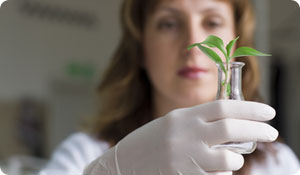
An ancient Chinese herbal medication, used for centuries to treat fever and malaria, is finding a new purpose in a modern Harvard research lab. This could be good news for people living with rheumatoid arthritis and related conditions.
Researchers at the Harvard School of Dental Medicine have discovered that an extract from the root of a specific type of hydrangea plant that grows in Tibet and Nepal may be useful in treating autoimmune and inflammatory diseases such as eczema, psoriasis, type 1 diabetes, and rheumatoid arthritis. Chang shan, long used in traditional Chinese herbal medicine as a treatment for fever and malaria, is now being studied for its potential therapeutic use in treating a host of other conditions.
Chang shan contains a substance known as halofuginone. Halofuginone is known to inhibit the growth of harmful TH17 cells in the body, which contribute to the development of autoimmune diseases. What makes halofuginone unique is that it appears to target a particular enzyme that is essential for the production of these destructive, disease-promoting cells, but has no effect on other T cells produced by the body during a normal immune response. This is important because medications currently prescribed for autoimmune disorders often destroy good cells along with the bad, putting the patient at higher risk of developing infections and even cancer.
The process of how chang shan works is complicated and not 100 percent clear to researchers. They do know that halofuginone turns on a pathway of events that lead to immune regulation and signaling within the body. This pathway, known as the amino acid response (AAR), involves a series of signals that slow down the events which lead to inflammation. During this process, halofuginone preventss an amino acid called proline from being packaged into a protein. When the body senses a lack of this particular protein, the AAR takes over, and signals that normally promote inflammation are turned off.
The herb is not only paving the way for potential new treatments, but helping researchers study the body's internal pathway that leads to disease. While the researchers are not recommending chang shan itself as an herbal treatment for rheumatoid arthritis, they do hope their work will lead to newer, safer medications for people who suffer from an array of autoimmune and inflammatory disorders.
Sources:
http://news.harvard.edu/gazette/story/2012/02/secrets-of-ancient-chinese-remedy-revealed/
http://www.webmd.com/rheumatoid-arthritis/news/20090604/chinese-herb-may-treat-autoimmune-diseases
Sundrud, M, et al. "Halofuginone Inhibits TH17 Cell Differentiation by Activating the Amino Acid Starvation Response." Science June 2009:324(5932)1334-1338. Web. 24 Apr 2012
http://www.sciencemag.org/content/324/5932/1334.abstract





